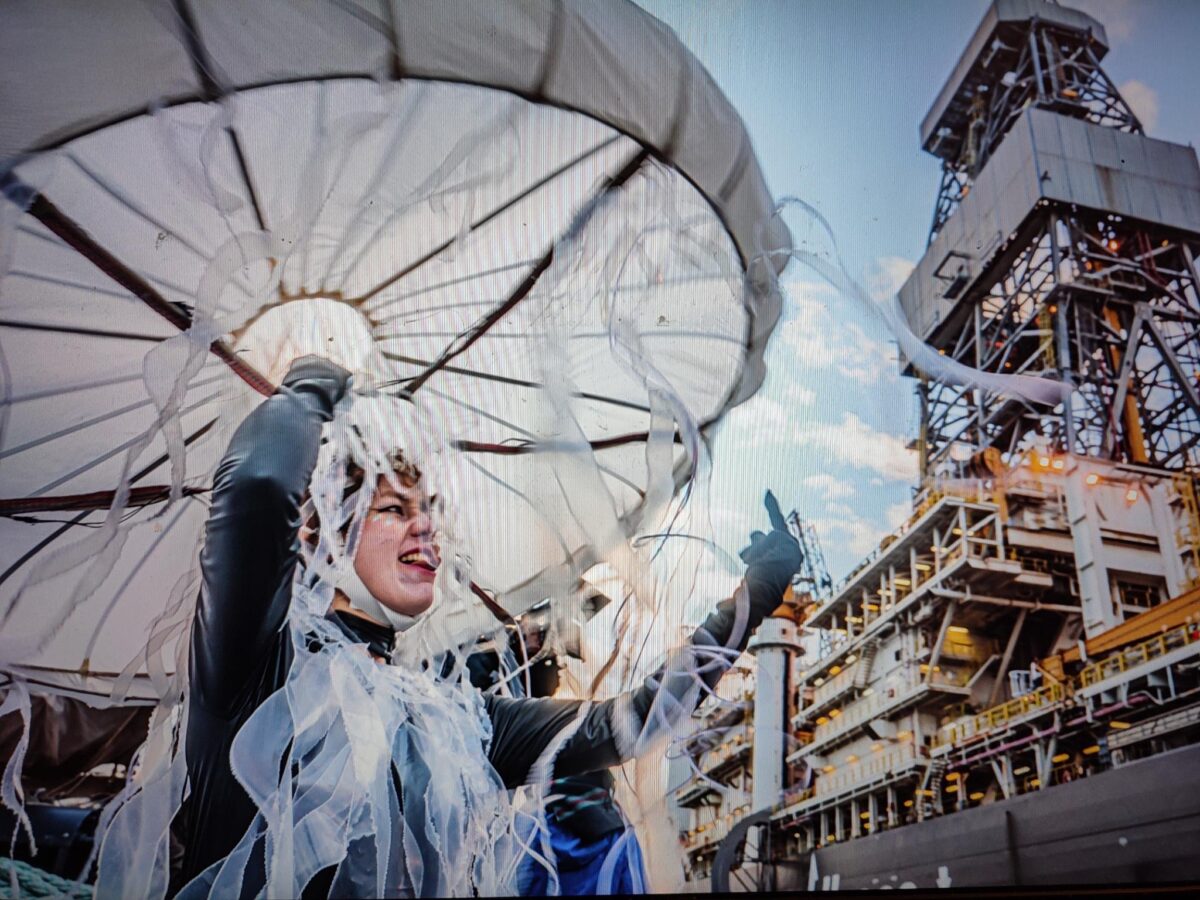DE DIEPZEE ZEGT NEE / THE DEEP SEA SAYS NO
08.02.2022
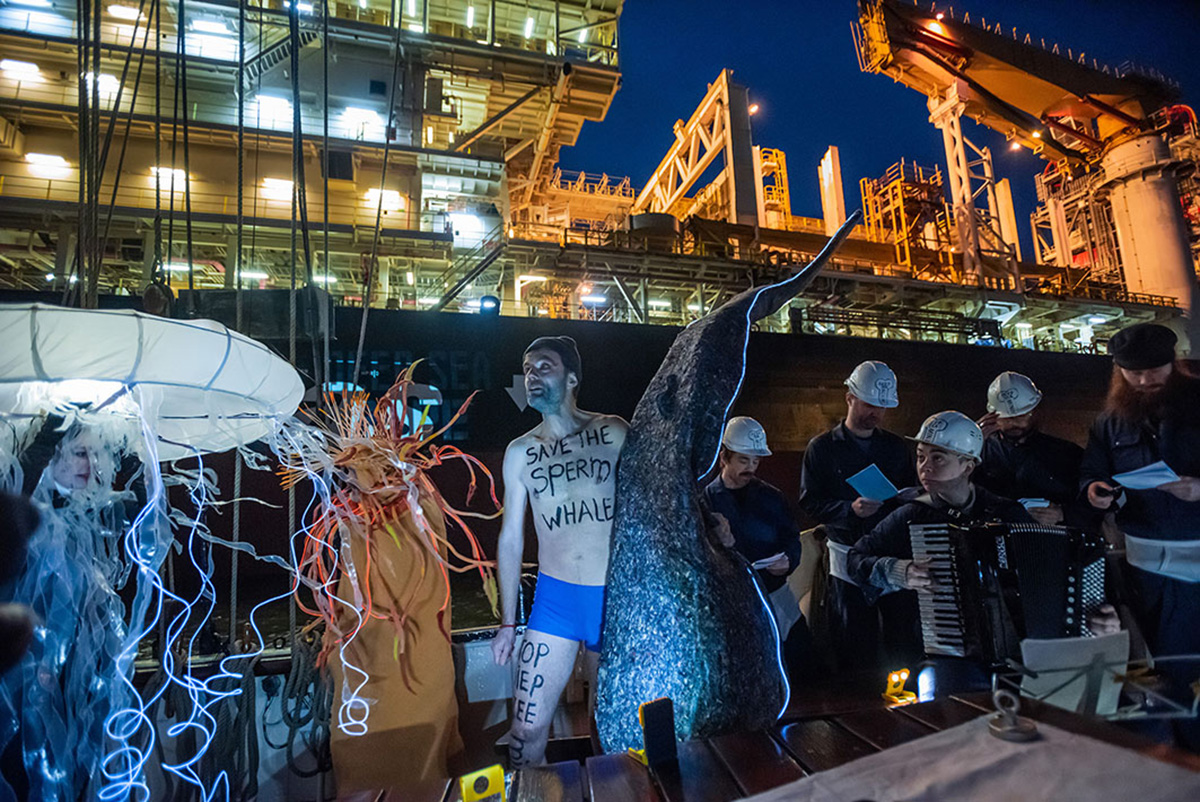
Today we dramatically drew attention to the terrifyingly large and ironically named ‘Hidden Gem’, the flagship of the Metals Company. The Metals Company choir – ‘In too Deep’ – sang loudly, imploring us to ‘Not Look Down’ as they became aroused by the death throes of the beautiful deep sea creatures dancing nearby. As they sang the creatures became ever more distressed, as the sonic waves battered and disorientated their delicate bodies. While ‘In too Deep’ sang, a group of costumed fisher folk appeared carrying banners with ‘DEEP SEA RAPE’ and ‘DE DIEPZEE ZEGT NEE’. Why the drama? In short, the ‘Hidden Gem’ is preparing to go out mining the deep sea, with potentially devastating consequences for all life. We must end this before it’s too late.

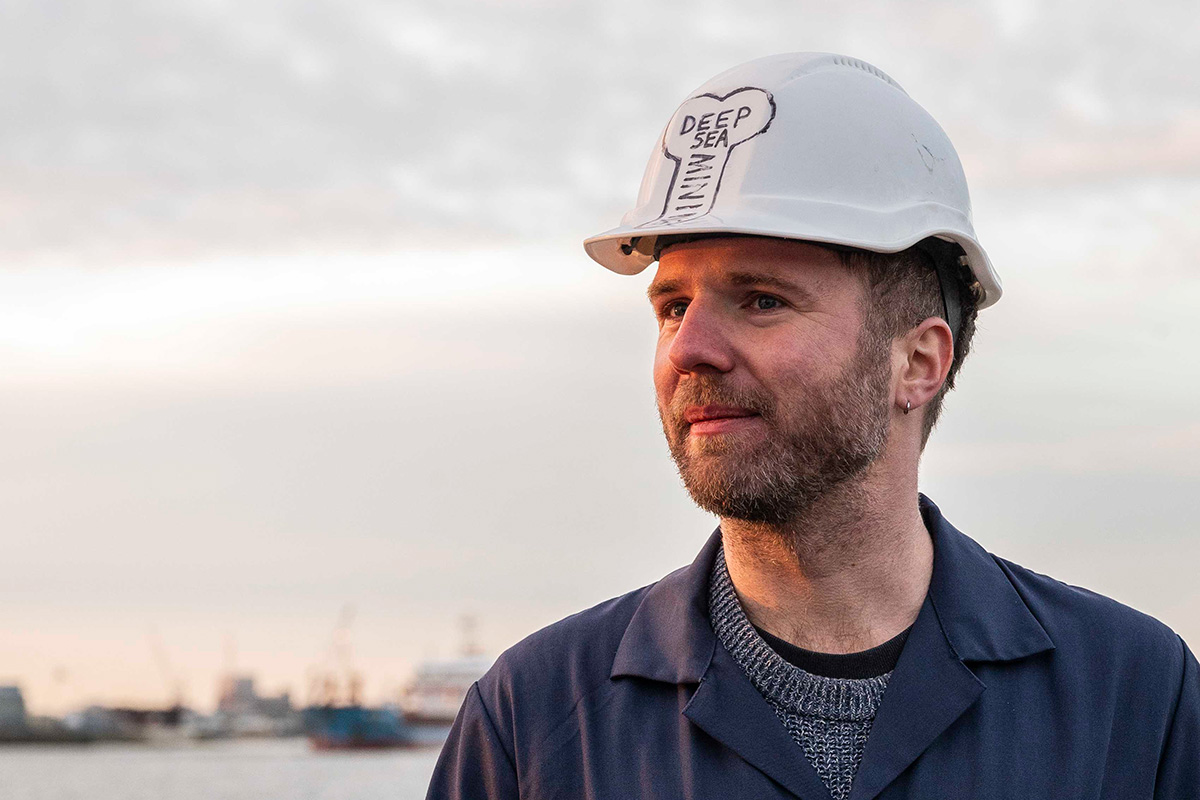
‘In too Deep’ performed in their usual mining gear – helmets, blue boiler suits and quick release underpants. The deep sea creatures illuminated the scene with their unusual, never before seen, appearance.
A small sailing boat, The Ocean Rebellion, set out to stand against the ‘Hidden Gem’ to defiantly remind The Metals Company that ‘As the Sea Dies We Die’. The Police arrested her before she made her ground.
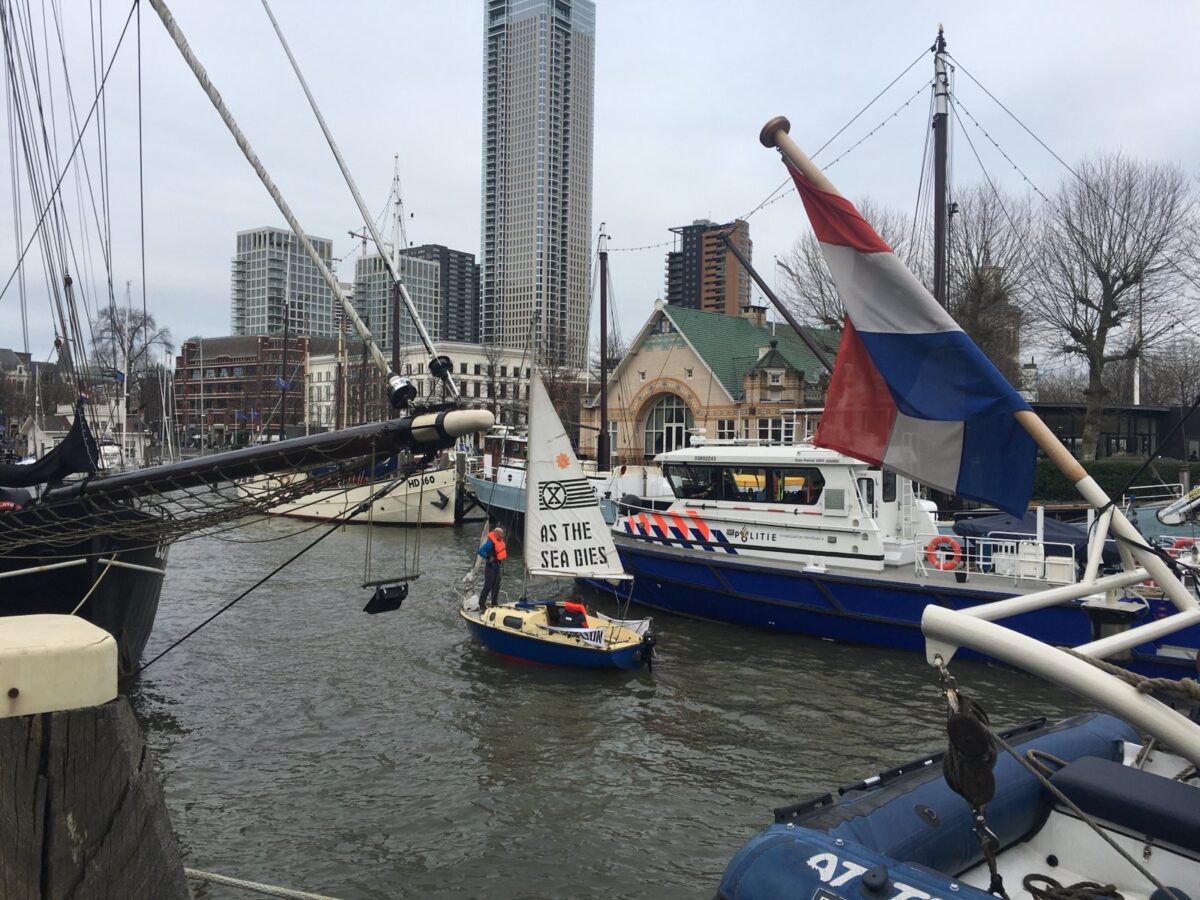
After the performance Ocean Rebellion projected a series of messages onto the hull of the ‘Hidden Gem’, some like DIEPZEE VAN ONS NIET DIEPZEEMIJN, DEEP SEA MINING, 100% UNNECESSARY, HUGE MACHINE, HUGE MISTAKE and TOXIC PROFITS CREATE TOXIC PLUMES reminded onlookers of the damage the ‘Hidden Gem’ will do, others like DEEP SEA MINING IS A DEATH (ISA) LICENCE, PLEASE LOOK DOWN MACRON and EVEN BMW SAYS NO, STOP DEEP SEA MINING reminding world leaders and the UN International Seabed Authority (ISA) to act now to put an end to deep sea mining and prospecting.
The fate of the Ocean depends on us all.
Our interventions depend on support.
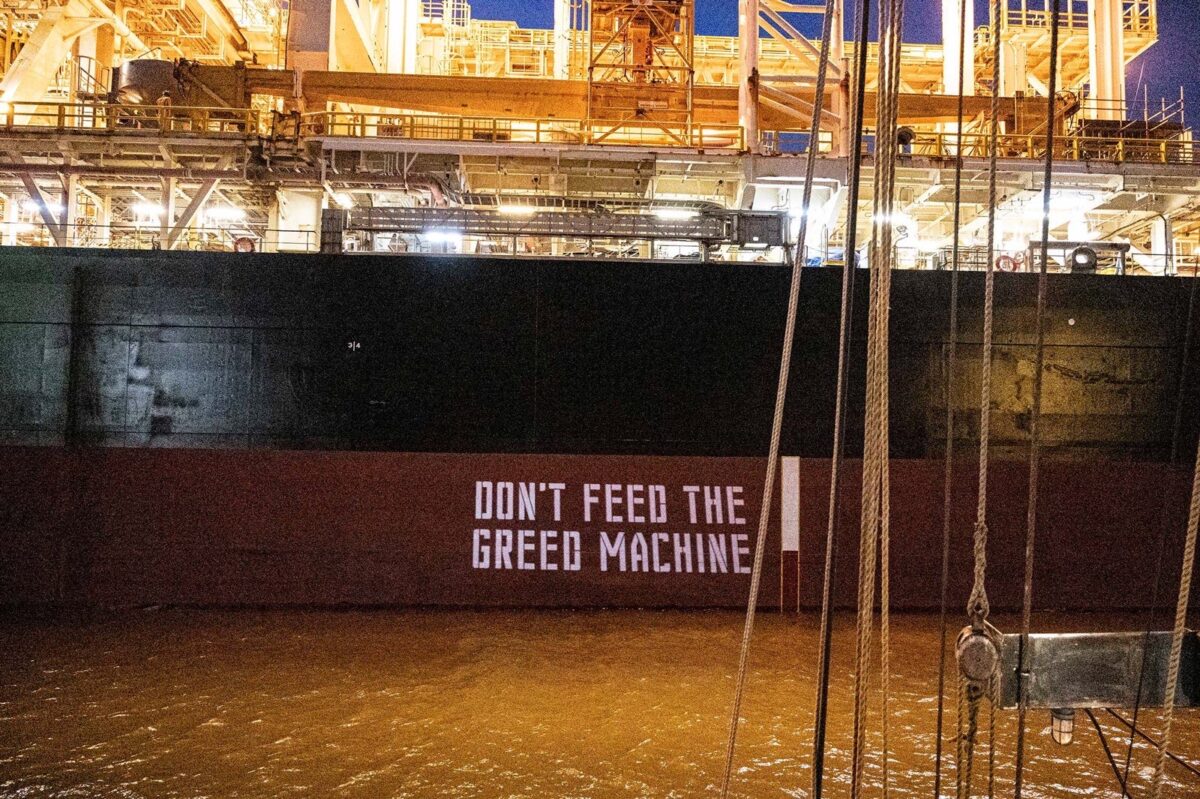
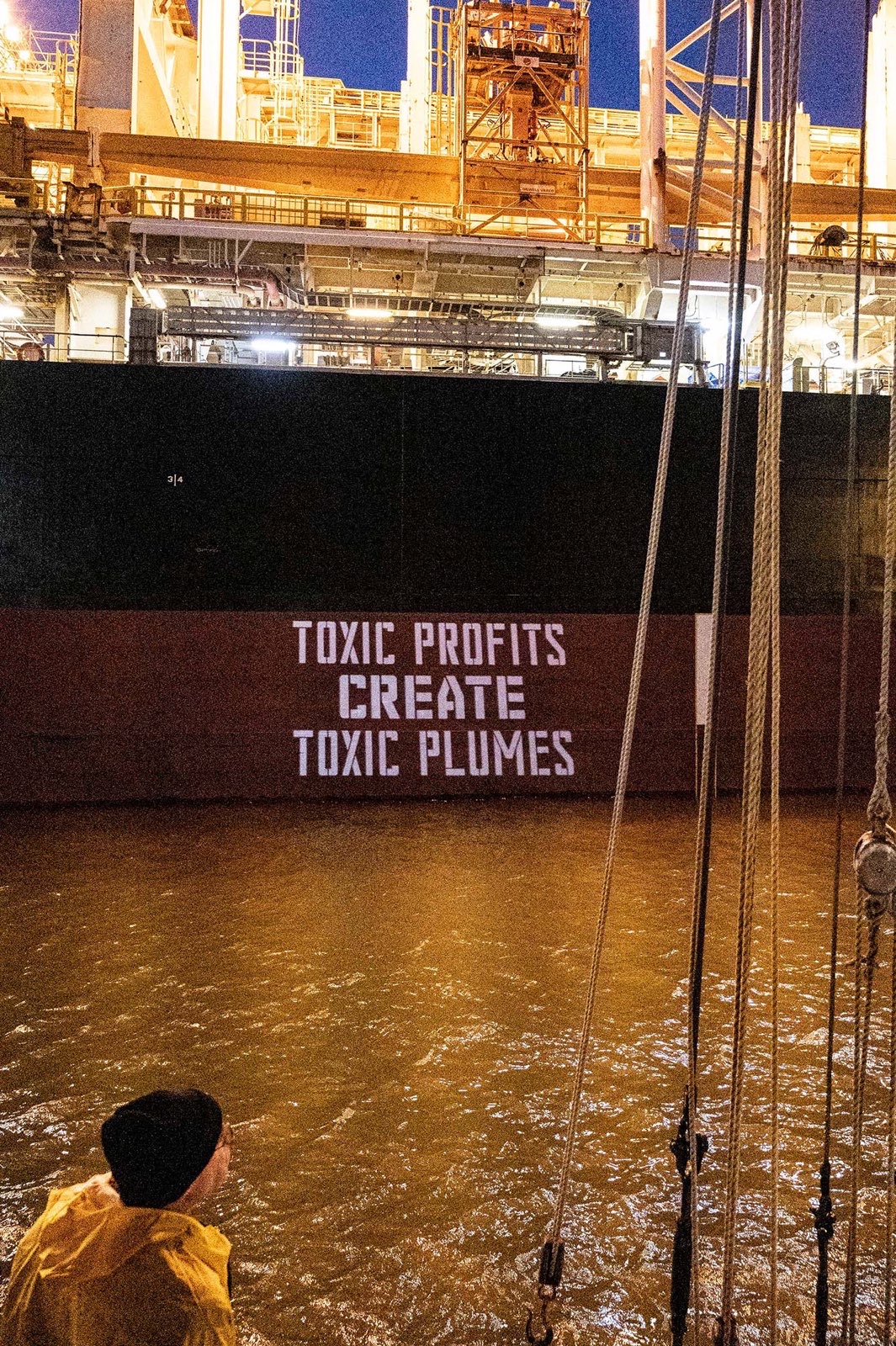
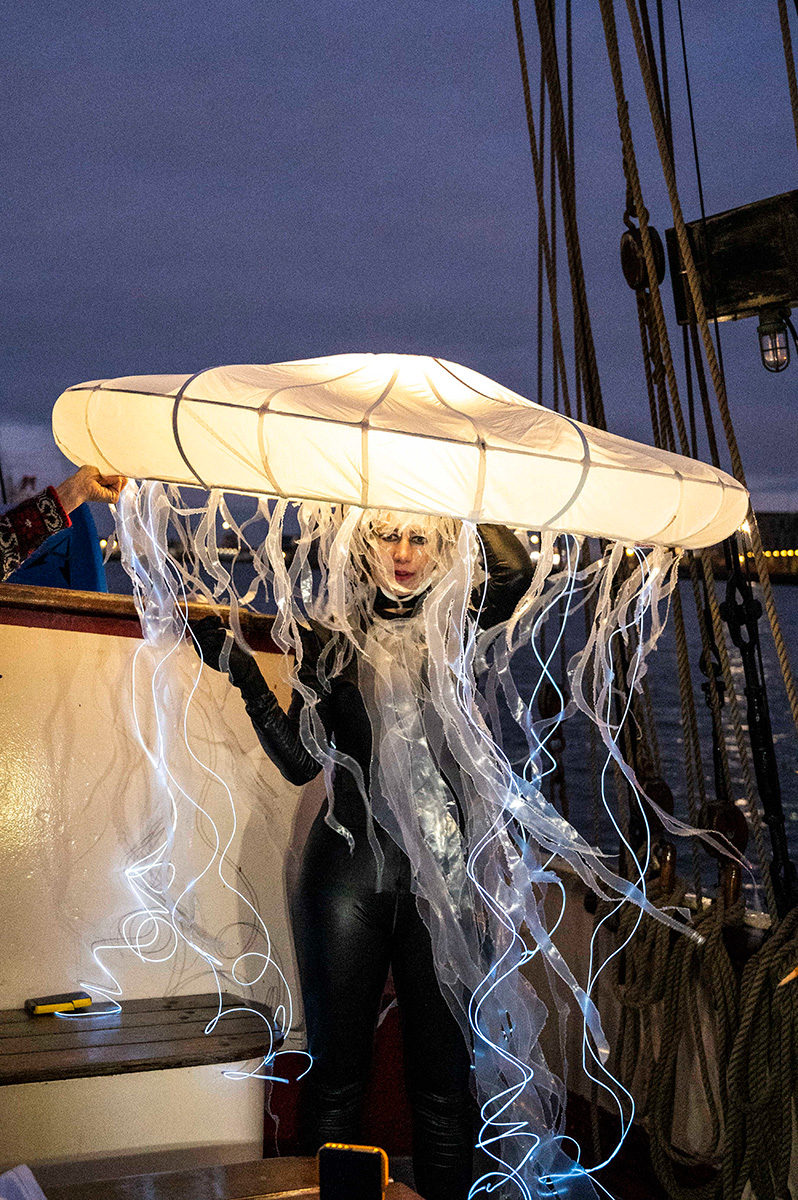
OR Deep Sea Creatures (and ‘In Too Deep’)
All life is connected to, and by, the Ocean.
Ocean Rebellion’s Deep Sea Creatures are a reminder of what we will lose, even before we know it’s there – the mysterious beauty of the Deep Sea. A truly magical, other-worldly, seascape. It has fired the human imagination across cultures for centuries. It is a shared place of wonder, free from human ownership, and it must remain this way.
‘In Too Deep’ typifies the greedy people who sit on the boards of companies (and govern states) who want to exploit the precious deep sea. ‘Don’t look down’ they say, that’s because they only crave careless profit and never consider the consequences of their actions. These company men talk about their green credentials, ‘our need’ for metals, and ignore the devastation their ‘big boy toy’ machines will do to the Ocean. We’ve seen this type of behaviour and greed before in the fossil fuel industry, chemical manufacturing and global finance.
It’s no surprise to see a list of European and North America companies leading the deep sea mining charge, there’s The Metals Company (Canada), UK Seabed Resources (UK / Lockheed Martin) and GSR/DEME (Belgium) with investors such as AllSeas hoping to profit.
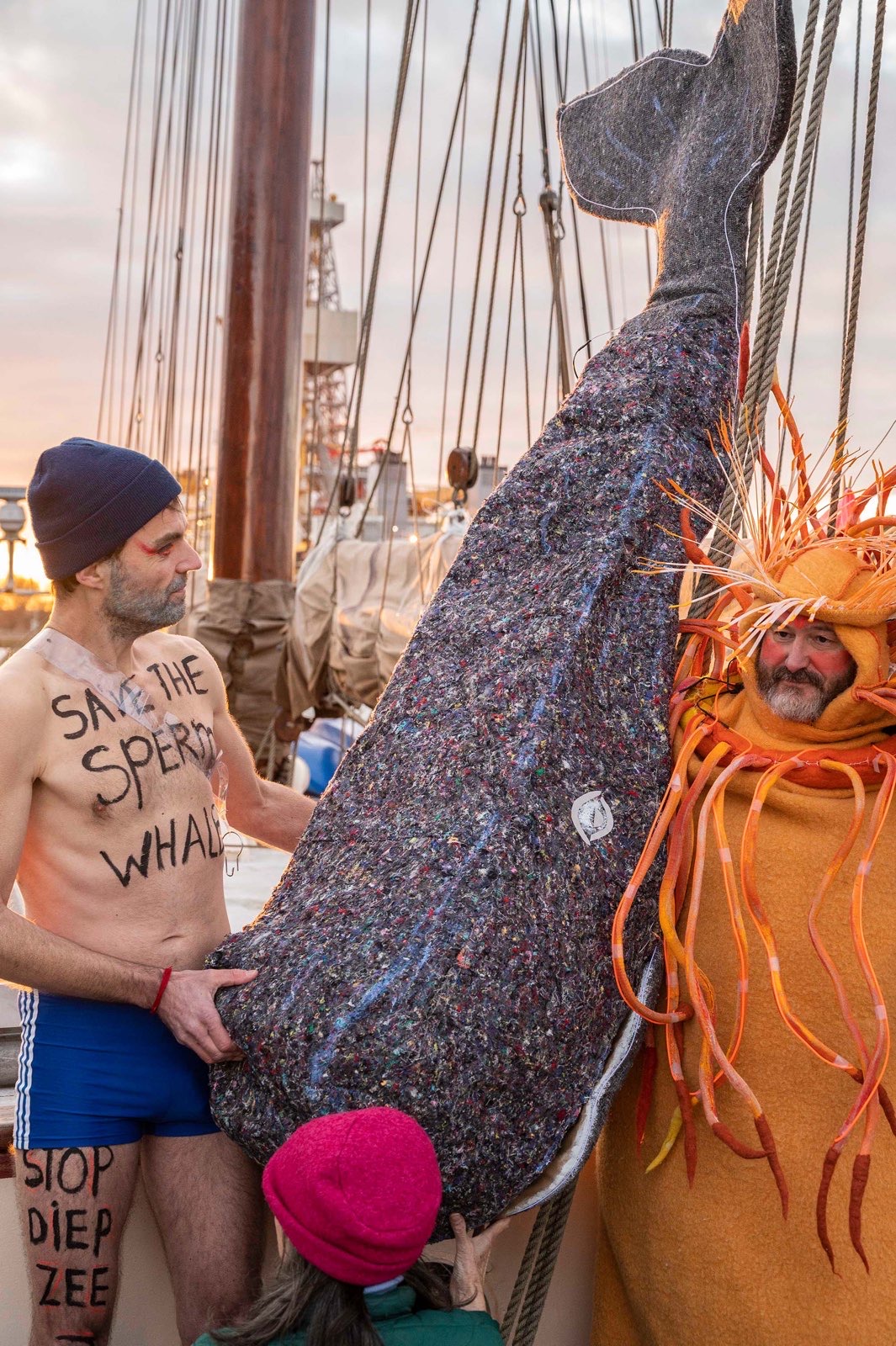
Ocean Rebellion understands ‘RAPE’ is a terrible word, we do not use it lightly. We cannot think of a better word to describe what companies like The Metals Company will do to the sea bed. It is an act of plunder, a violent seizure, or abuse; despoliation; violation. It will tear apart unique environments for little gain, it is an act of pure greed. It is both physical and emotional abuse with no consent by the victim(s). There’s no justification for doing it, just like rape.
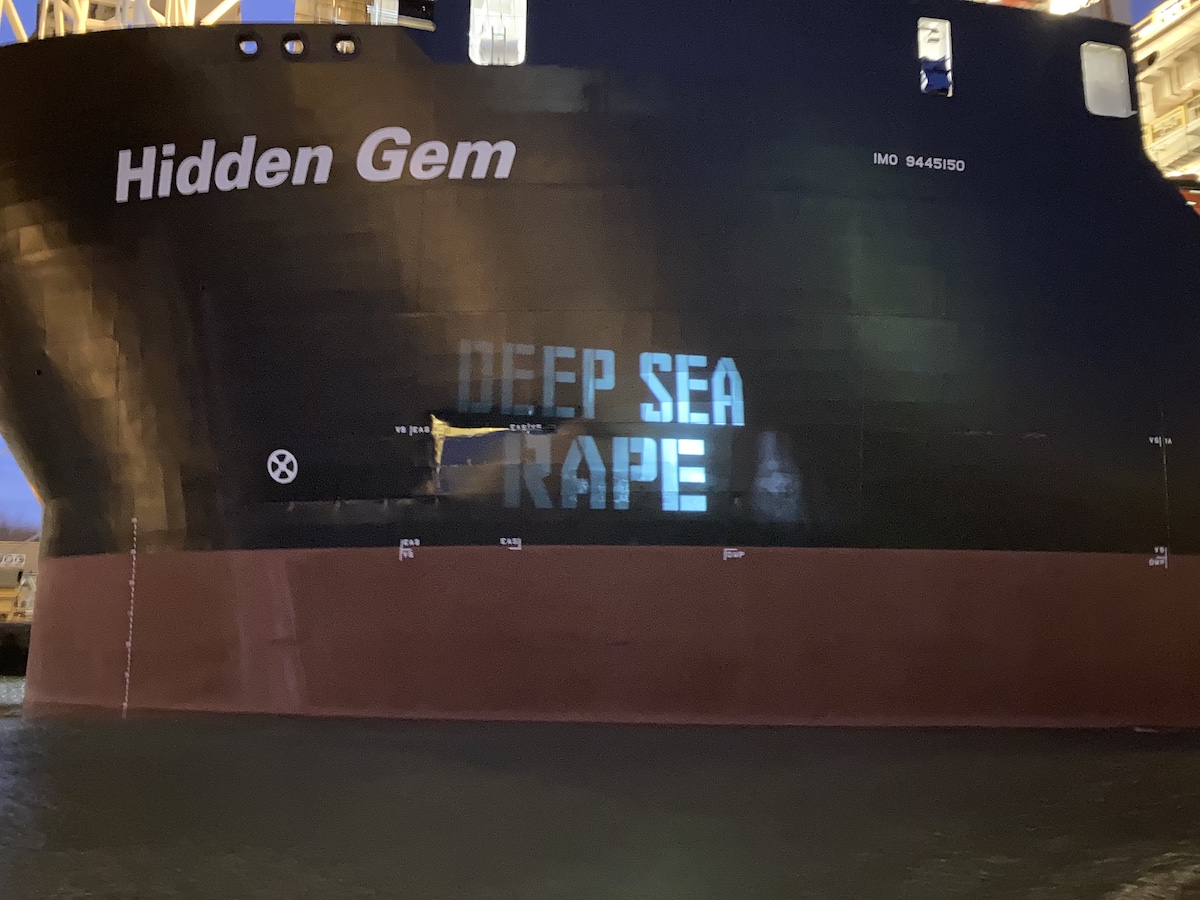
Why the deep sea?
The deep seabed is largely unexplored, many areas have unique marine life (an estimated 10m life forms and most are undiscovered) and many areas are important to the survival of all ocean life. Deep Sea Mining in areas like the Clarion Clipperton Fracture Zone (CCFZ) (Pacific Ocean) will destroy the deep seabed and the life that depends on it, destroying corals and sponges that have taken thousands of years to grow. The sediment plumes will rise upwards through water columns harming more life above. Toxic metals will inevitably find their way into the food chain – we just don’t know how catastrophic deep-sea mining will be when it comes to sediment release, nor do the companies involved.
Noise from deep sea mining is another big problem. Whales and other deep-diving animals rely on sound to hunt prey, sonic prospecting and drilling will prevent this happening, seriously disrupting delicate ecosystems.
One deep sea mining licence will strip a sea bed one third the size of Belgium of all life
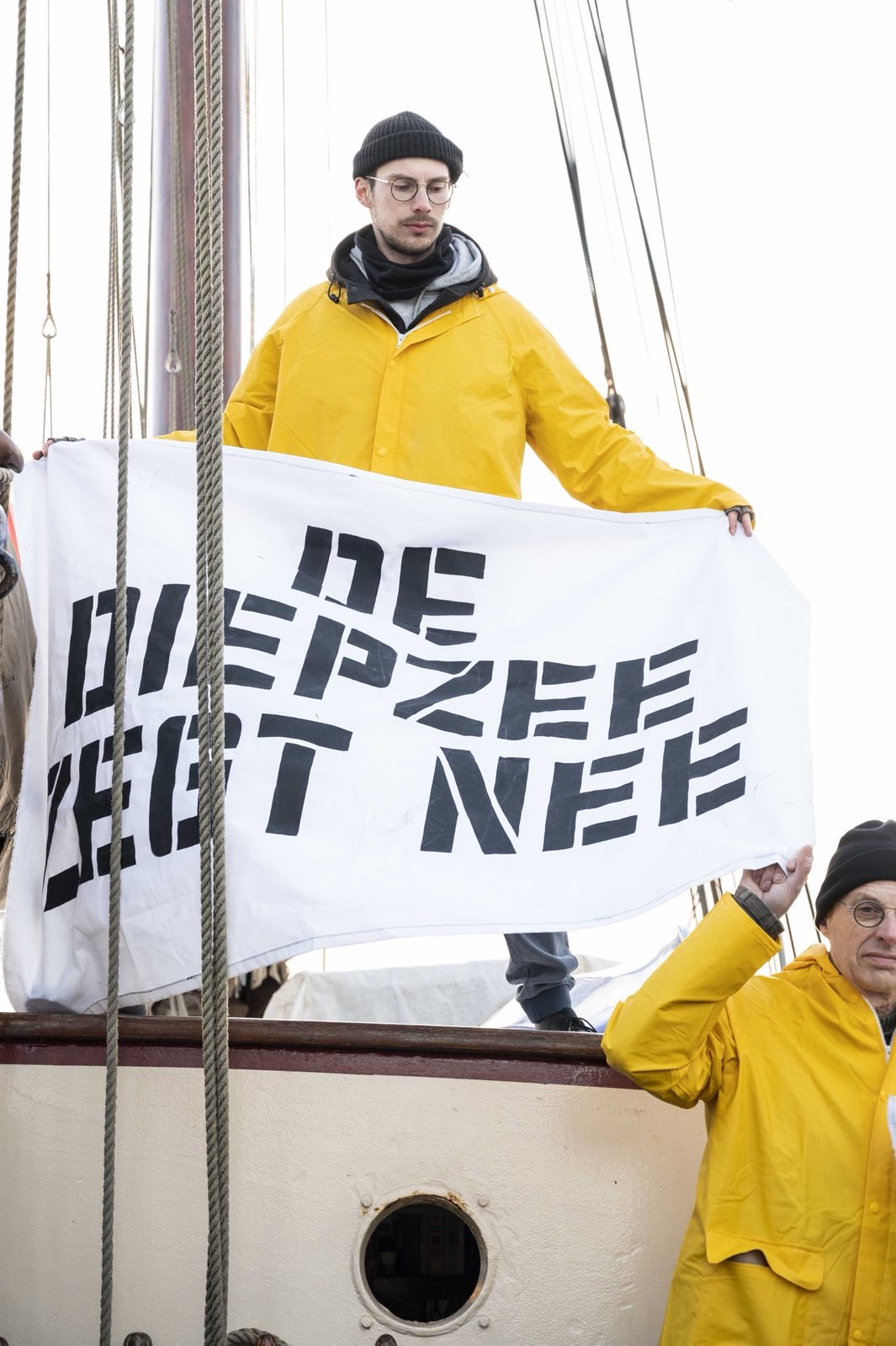
A massive area will be ruined
Recently the ISA awarded licences to mine 8,000 to 9,000 square kms of deep seabed at a time*. This area is equivalent to one third of Belgium. That’s one third of Belgium stripped clean of all life, hard to imagine this being allowed on land isn’t it? Why does the ISA think it’s ok to do it at sea? Perhaps they’re hoping we ‘don’t look down’ too.
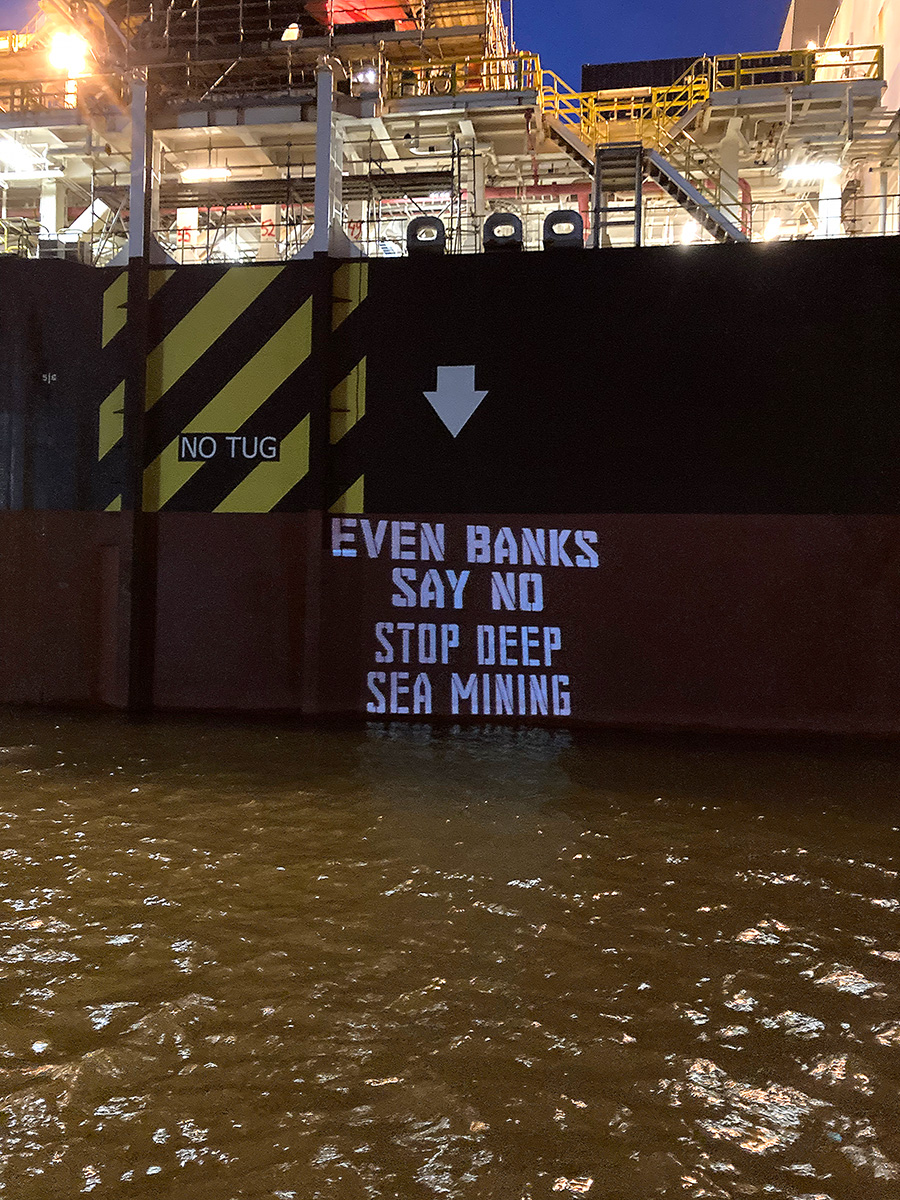
Controversy
The ISA is supposed to manage the high seas for the ‘benefit of [hu]mankind’. At the same time it profits from selling licences to mine. How can a UN agency be allowed to profit from something it is designed to protect? And why is a UN agency allowed to act against its own ‘precautionary principles’? Is profit the only measure the ISA is considering? There is a lot of smoke around the ISA, it’s governance is opaque and seems to be designed to enrich the rich. Like its sister UN body the International Maritime Organisation (IMO) the ISA is filled with industrial representatives who have a big say in the decision making process.
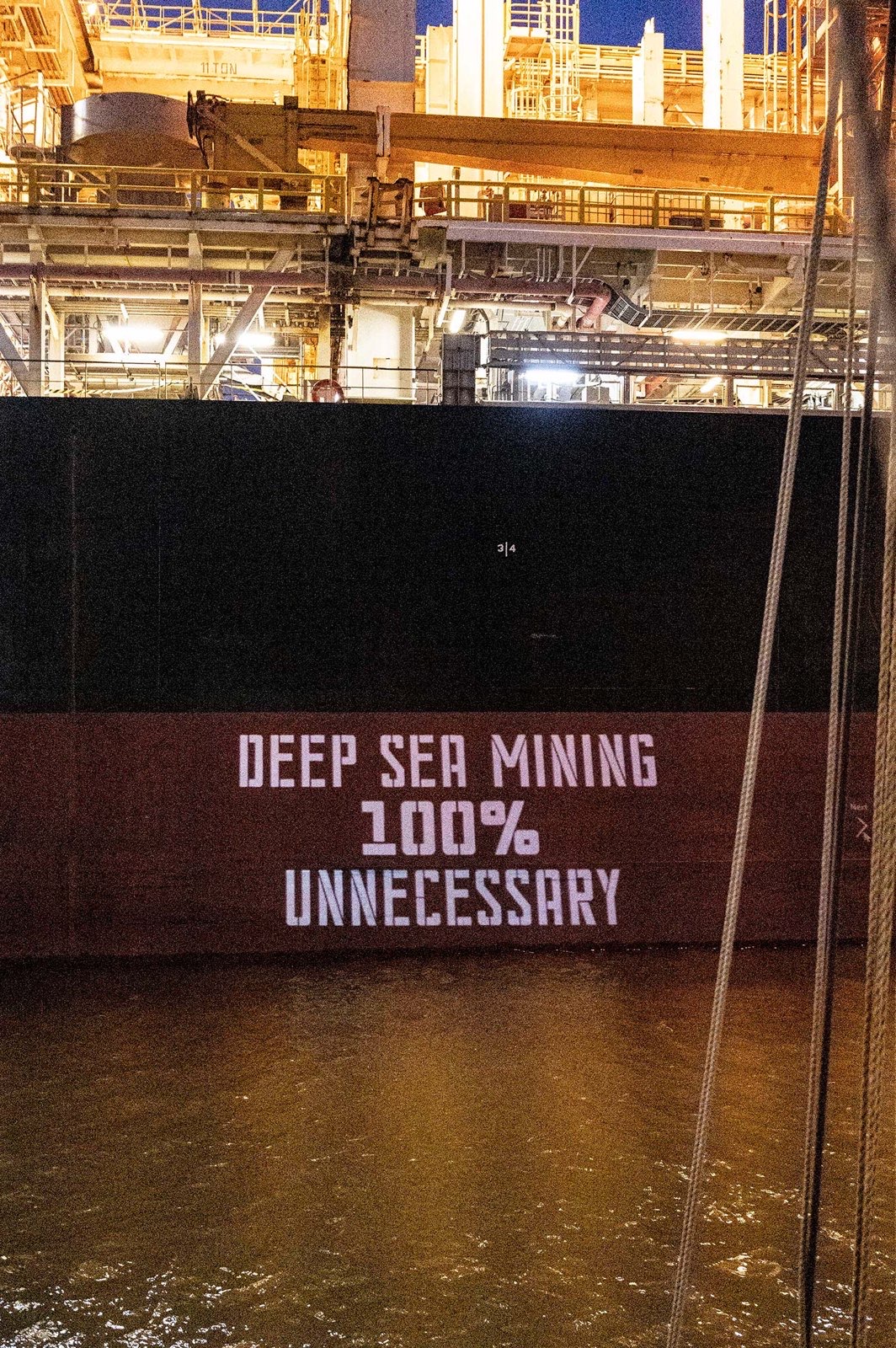
Do we need deep sea metals to go ‘green’?
The Metals Company, and all the other companies, would like us to think so. But major international companies have stated they will not use nor invest in deep sea metals. The list is growing and includes signatories like BMW, Volkswagen and Google. But also banks are steering clear of this emerging industry that belongs in the past. Companies are developing batteries that don’t require any of the metals deep sea mining will deliver. This is because battery technology is changing. Deep sea mining is a 1970s nightmare living in the 21st Century, just like fossil fuels. In fact the only real solution to our climate crisis and resource issues are nature-led and require a change in the way we act. The throwaway culture of the past needs to be thrown away, companies and governments must steer away from stealing anything they require (using the guise of progress) for profit, towards a circular view that values repairability and the urban mining of existing, extracted, metals.
Ocean Rebellion demands an end to Deep Sea Mining. Together with a root and branch reform of the ISA. This reform must focus on protecting the deep (and high) seas on behalf of ALL life and future generations.
The fate of the Ocean depends on us all.
We’ll let you know what we’re doing to help.
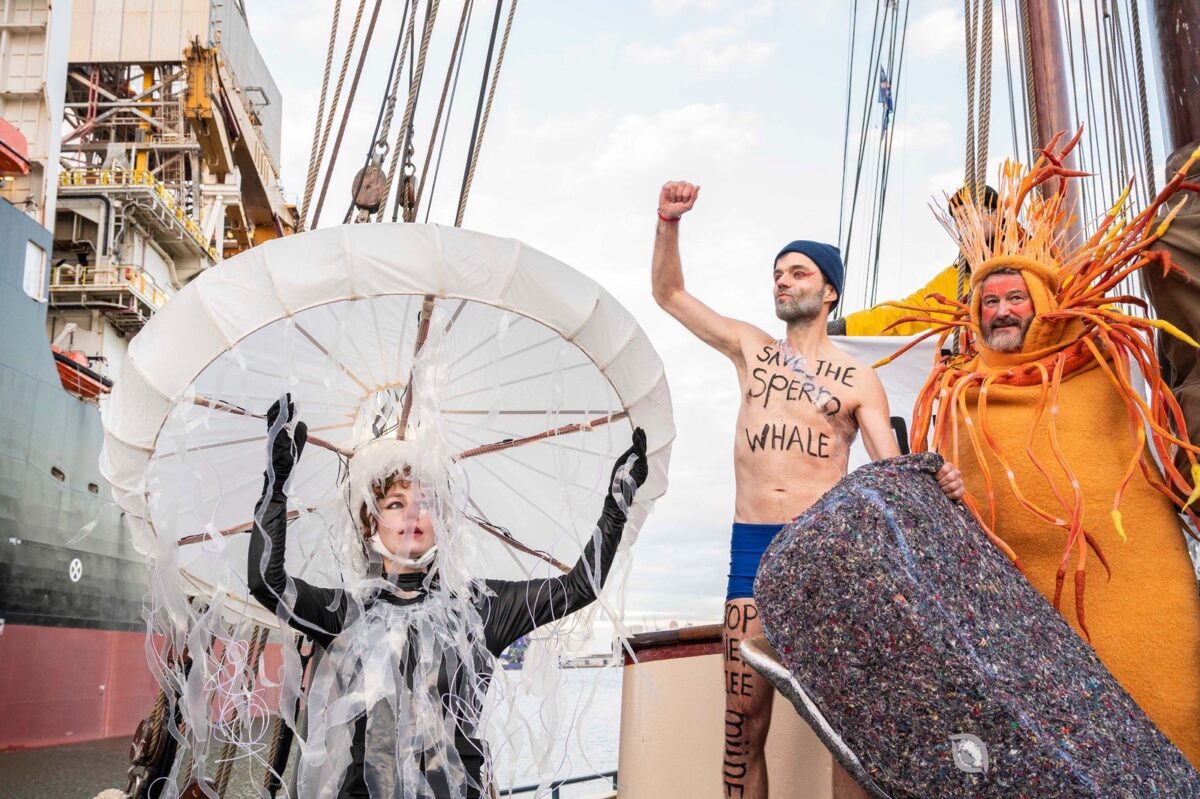
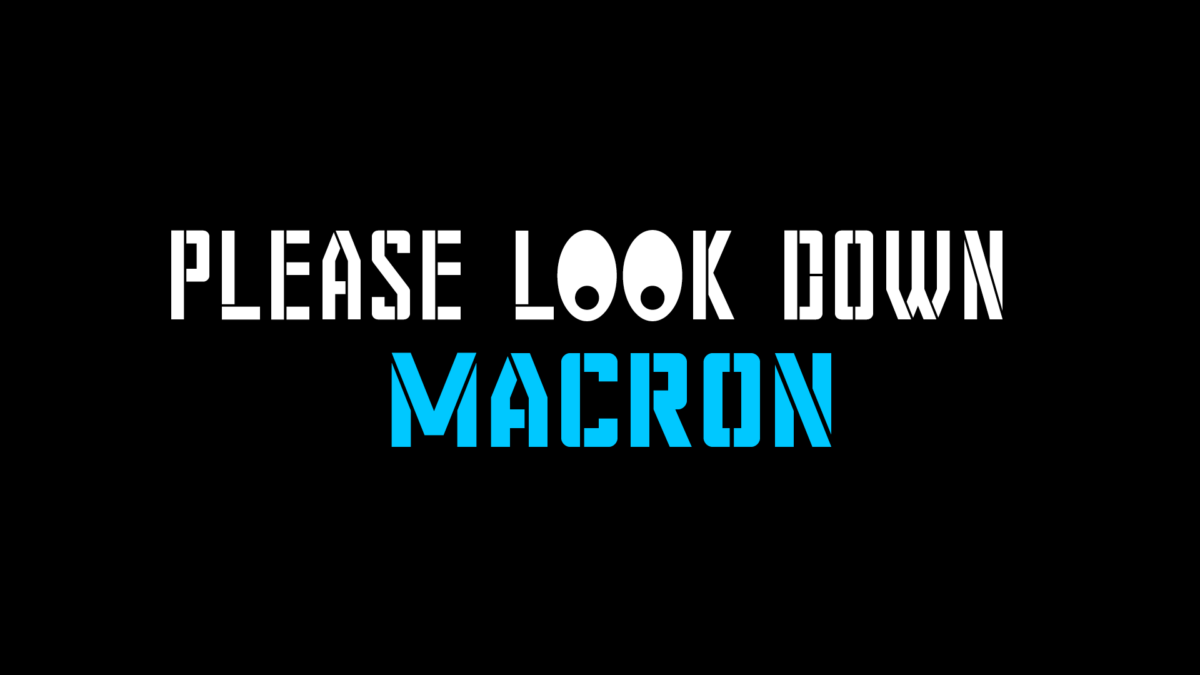
Stefanie Wels from Ocean Rebellion says:
“The deep sea is not a ‘resource’ to be plundered at will by a few greedy companies. It’s a vital habitat we know little about. The UN International Seabed Authority must stop this insanity now, and start protecting the seabed for the benefit of ALL life, not for the benefit of its own funding model, nor for a group of greedy insiders.”
Clive Russell also from Ocean Rebellion adds:
“The UN International Seabed Authority (ISA) is clearly unfit for purpose. How does decimating the deep sea bed, releasing carbon stored in deep sea sediments, and disrupting the Earth’s largest (and most undisturbed) ecosystem, fit with the UN’s aims for the future?
Roc Sandford also from Ocean Rebellion says:
“And the economics don’t make sense either. The ISA is supposed to manage the seabed ‘for the benefit of mankind as a whole’, but current calculations show the royalties collected from each mining licence will amount to a few thousand dollars for each ISA country member per year. The big money will go to the shareholders of Lockheed Martin, Global Sea Mineral Resources and The Metals Company. How is that (hu)mankind as a whole? Deep sea mining is no different to fossil fuels, it’s a greenwashing greed machine designed to benefit a few, already, rich sociopaths.”
Suzanne Stallard also from Ocean Rebellion says:
“Deep sea mining isn’t even on the agenda at the One Ocean Summit in Brest, Brittany. It’s about time these navel gazing politicians started to take the Ocean seriously. They have an opportunity to stop a contributor to environmental destruction before it has started. We genuinely don’t need to mine the deep sea, we have the minerals we need already. What’s more, the minerals deep sea mining will provide won’t be needed by the new wave of technology – companies like The Metals Company are just filling their own pockets while they can. Act now Macron, be a real blue leader and show the world France cares about the deep sea.”
Rob Higgs also from Ocean Rebellion adds:
“You can clearly see what they’re doing, renaming a company called ‘DeepGreen’ to ‘The Metals Company” (just when governments are ranting about electric cars), setting up lying machines like DSM-facts.com – telling us deep sea mining is all research for universal benefit. It’s like watching a Shell strategy meeting discussing how to greenwash their next big oil disaster, cigar anyone?”
As the sea dies WE DIE
ACT NOW
Leave a review of the UN International Seabed Authority on google maps:
HERE
And a review of their film on YouTube:
YouTube
Sign this petition:
SIGN
Join the voices asking for a moratorium on Deep Sea Mining:
ADD YOUR VOICE
The fate of the Ocean depends on us all.
We’ll let you know what we’re doing to help.
*The ISA has granted over thirty exploration licences to date, and if all 17 of the current mining claims in the Clarion Clipperton Zone were to be mined, the overall impact to the seabed would likely extend from some 350,000-800,000 km2 based on recent estimates from scientists (Smith et al., 2020).
Photos: Top, Charles M Vella, and down, 2, 3, 5, 6, 7, 8, 10, 12, 13 Savannah van den Rovaart, below @jorisvangennip
